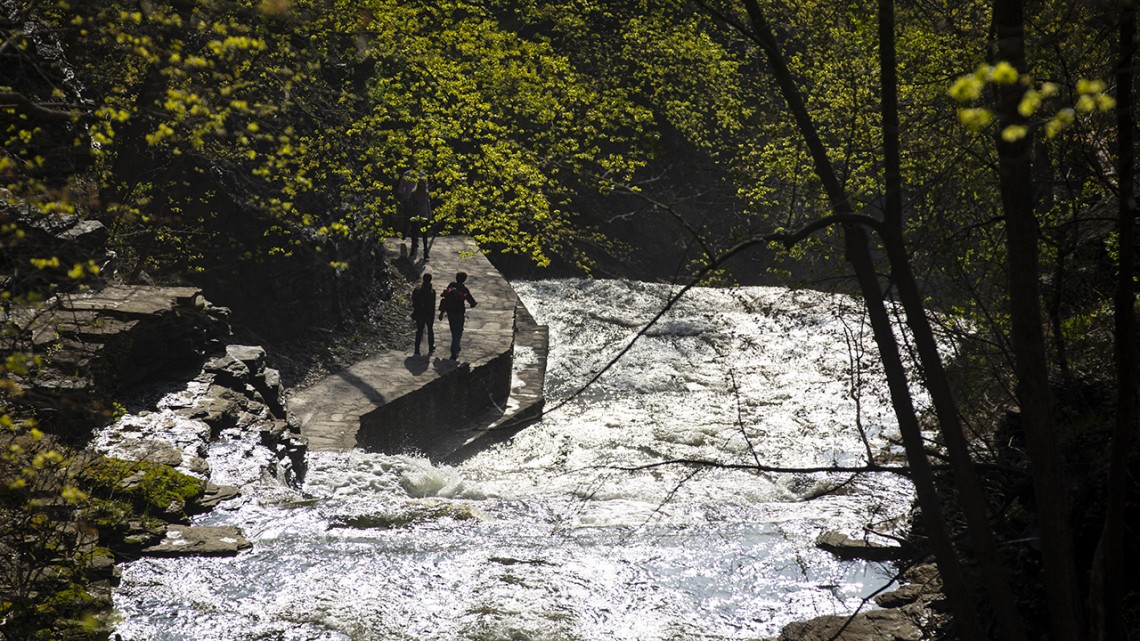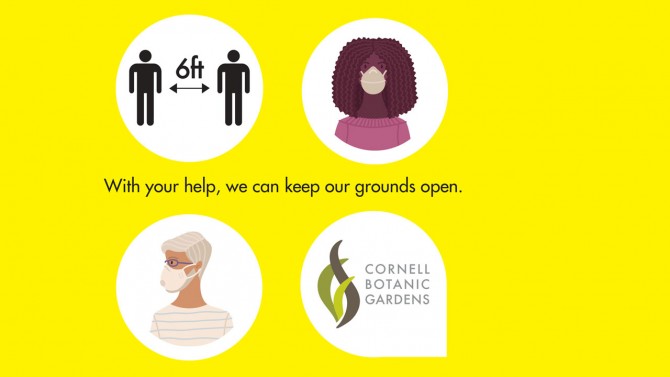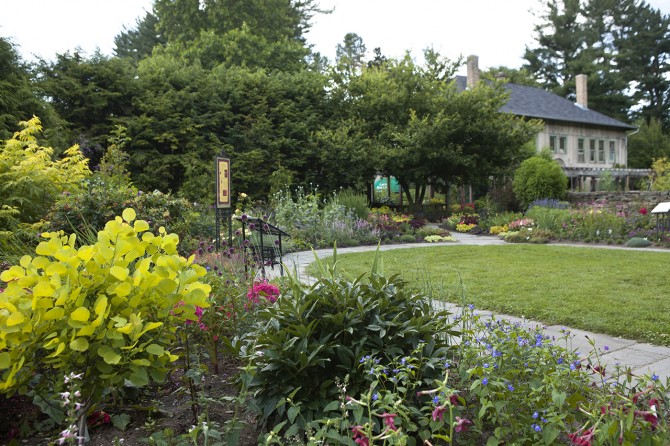
Cornell’s gorge safety website and gorge stewards on campus trails provide education, help and guidance on enjoying gorges and natural areas safely.
Hikers urged to enjoy gorge trails, natural areas safely
By Daniel Aloi
The gorges and trails around Cornell are some of the most iconic features of the campus landscape, but fully appreciating their natural beauty and value as a site for recreation requires caution and safety-consciousness.
Cornell’s gorge safety website has a range of information and resources for the safe enjoyment of natural areas on campus and in the community.
“Research shows that spending time in nature lowers stress levels and improves other health measures – something that is especially critical as we contain and respond to COVID-19,” said Todd Bittner, director of Cornell Botanic Gardens’ natural areas and chair of the university’s Gorge Safety Committee. “Yet it is equally critical that we practice safe and responsible use of gorges and natural areas, and respect the natural dangers inherent in them.”
The safety committee, natural areas staff and gorge stewards collectively facilitate the safe and responsible use of natural areas on campus. Their work is guided by four principles:
- building awareness around the inherent dangers present in the gorges;
- maintaining and improving trails, staircases, railings, signage and fences;
- promoting safety by informing visitors about campus and gorge regulations; and
- highlighting alternatives to unsafe practices and behaviors.
Cornell has a comprehensive set of education and safety measures as part of the Nathaniel Rand ’12 Memorial Gorge Safety Education Program, named in memory of a student who died in a gorge drowning accident in 2011, one of three deaths in a three-month period that year.
Since 2012, a key part of the educational programs around gorge use has been the gorge stewards, managed by Cornell Outdoor Education (COE). The stewards act as ambassadors for the gorges, educating visitors about nature, geology and history; identifying unsafe practices, giving directions and helping to inform visitors of the ways they can safely explore the gorges. Many students and community members have served as gorge stewards; COE staff are taking on the duty this year.
Violations of gorge regulations have “dropped dramatically since comprehensive gorge safety programs were put in place,” Bittner said, from more than 8% of all trail users counted in 2013 to 0.27% in 2019.
The programs reinforce some basic safety guidelines: Stay on trails or within designated areas; no bicycles on the trails; no swimming; and do not walk on closed trails or other restricted areas marked by fences, gates or railings.
Swimming is extremely dangerous and potentially fatal, and is strictly prohibited in the gorges at all times. The gorge stewards provide this warning: “Many of the greatest dangers, such as strong currents, are hidden under the sublime beauty of a waterfall. Beyond being illegal, swimming in these areas is particularly dangerous.”
The gorge safety site can direct people to information on safe outdoor swimming options off campus. Other resources on the site include a safety brochure and a video on using gorge trails.
To enhance visitor safety and enjoyment, new wayfinding and orientation signs were installed at all trail and walkway intersections around Beebe Lake in 2019 to assist hikers on their way to and from Botanic Gardens natural areas and other locations on campus, such as North Campus, the Arts Quad and the Ag Quad. Also, red emergency locator signs were installed along the gorge trails to help hikers in distress provide a location to first responders.
This year, there is special guidance on safe practices in light of COVID-19 and the increased number of visitors to campus natural areas. People should wear face coverings and maintain a distance of at least six feet from each other on trails and in all campus natural areas – including gorges and the gardens and arboretum at Cornell Botanic Gardens, which also advises visitors to explore the trails and gardens alone or in small groups.
New signs are in place throughout campus natural areas to remind visitors of safe-use expectations.
As some of the campus trails are quite narrow and don’t afford adequate space for social distancing, several trails have been closed, including the lower section of the Cascadilla Gorge Trail between College Avenue and University Avenue. The F.R. Newman Arboretum remains closed to vehicles to accommodate safe pedestrian use of interior roads for physical distancing; alternate parking is available in the B Lot near Route 366 off Caldwell Road.
With the cooperation of visitors observing safe-use practices, Cornell Botanic Gardens can continue to make the gorge trails, natural areas, gardens and arboretum available to the public “at a time when being outdoors is especially beneficial to an individual’s physical and mental well-being,” Bittner said. “Visit us often, for your own benefit, but please do so safely.”
Tompkins County has more than 240 miles of trails, including 30 miles of trails across Cornell Botanic Gardens’ natural areas.
“Wherever you live,” Bittner said, “you can find a trail, park or natural area within a few minutes’ walk or ride.”
Media Contact
Get Cornell news delivered right to your inbox.
Subscribe


